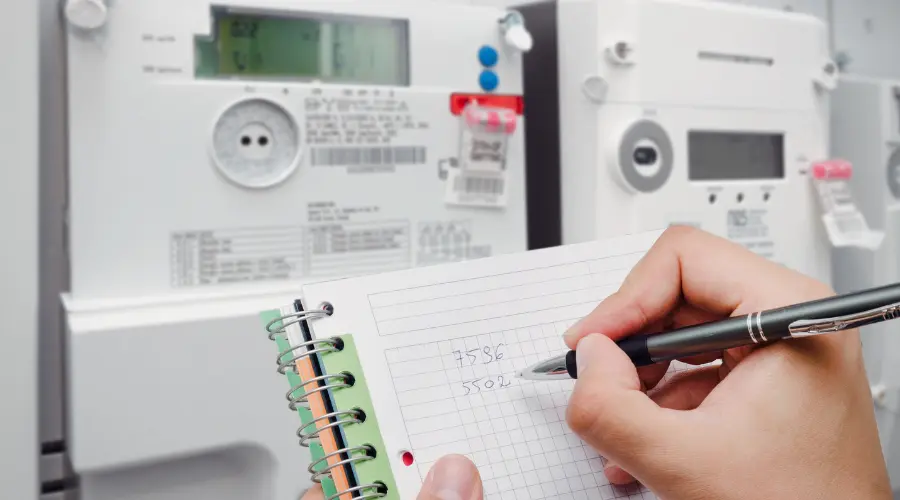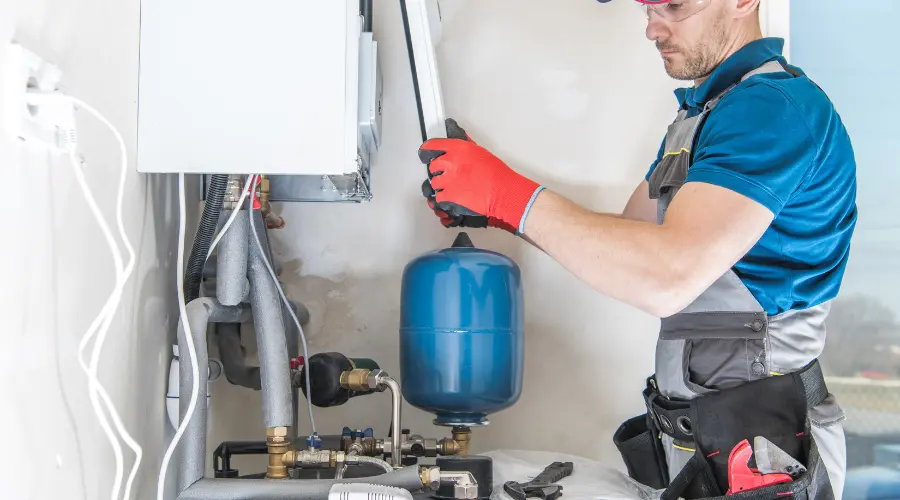Key Takeaways:
- Air conditioner odors can indicate various issues, ranging from minor concerns to serious hazards.
- Common AC smells include burning, rotten eggs, mold, exhaust fumes, and chemicals.
- Some odors, such as gas leaks or freon leaks, require immediate professional attention.
- Regular maintenance can help prevent many odor-related AC problems.
Why Does My Air Conditioner Smell Bad?
An air conditioner is essential for maintaining indoor comfort, but when it starts emitting foul odors, it becomes a cause for concern. Unpleasant smells coming from your AC unit could indicate issues that range from minor inconveniences to major health hazards. Understanding the different types of odors and their potential causes can help you address these issues effectively.
Below are the six most common AC smells and what they mean for your home or business.
1. Burning or Electrical Smell
Causes:
- Overheated compressor or fan motor
- Wiring issues or electrical component failure
- Accumulated dust burning off after inactivity
Solution:
If the smell persists beyond 20-30 minutes, turn off the unit immediately and call an HVAC professional. Electrical issues pose serious fire hazards and should be addressed promptly.
2. Gunpowder-Like Smell
Causes:
- Malfunctioning circuit board
- Overheated fan motor
Solution:
Turn off the AC and have it inspected before restarting it. Ignoring this smell could lead to system failure or respiratory risks.
3. Rotten Egg or Sulfur Smell
Causes:
- Natural gas leak in the ventilation system
- Dead animal or pest infestation in the ductwork
Solution:
If you suspect a gas leak, evacuate the building immediately, open windows, and call the gas company. If a pest infestation is the issue, contact pest control to remove the source of the odor.
4. Exhaust Fumes Smell
Causes:
- Leaking fluids from AC components
- Oil or chemical burning within the unit
Solution:
Contact an HVAC technician to inspect for leaks and prevent hazardous gas exposure. Breathing in exhaust fumes can be dangerous to your health.
5. Chemical Smells
Causes:
- Nearby chemical storage affecting air intake
- Refrigerant leak (Freon leak)
- Recently installed ductwork with drying adhesives
Solution:
If you suspect a Freon leak, call an HVAC professional immediately. Freon exposure can lead to health complications such as dizziness and respiratory issues. For chemical storage, relocate containers away from the AC intake to prevent odor circulation.
6. Musty or Moldy Smell
Causes:
- Mold and mildew growth inside ducts or AC unit
- Clogged condensate drain line
Solution:
A professional HVAC cleaning can improve air quality by eliminating mold and mildew. Regular maintenance can prevent moisture buildup and microbial growth.
FAQ Section
1. What should I do if my air conditioner emits a chemical-like smell?
Chemical odors may indicate a refrigerant leak or chemical storage issue near the AC unit. If the smell persists, call an HVAC professional for an inspection.
2. What does Freon smell like?
Freon leaks often emit a sweet or chloroform-like odor. If you detect this smell, vacate the area and contact an HVAC technician immediately.
3. Why does my central air conditioner smell musty?
A musty smell is commonly caused by mold and mildew buildup in the AC system or ductwork. Regular cleaning and maintenance can prevent this problem.
4. Is a burning smell from my AC dangerous?
Yes, a persistent burning smell could indicate overheating components or electrical issues, both of which pose fire hazards. Turn off the AC and seek professional help.
5. How can I prevent bad smells from my air conditioner?
- Change air filters regularly.
- Schedule annual AC maintenance.
- Keep the condensate drain line clear.
- Ensure proper ventilation around chemical storage areas.
By understanding these common AC odors and their causes, you can take proactive steps to ensure your air conditioning system remains safe, efficient, and odor-free. If in doubt, always consult an HVAC professional at CBJ West New Your Plumber to diagnose and resolve persistent or hazardous smells.





